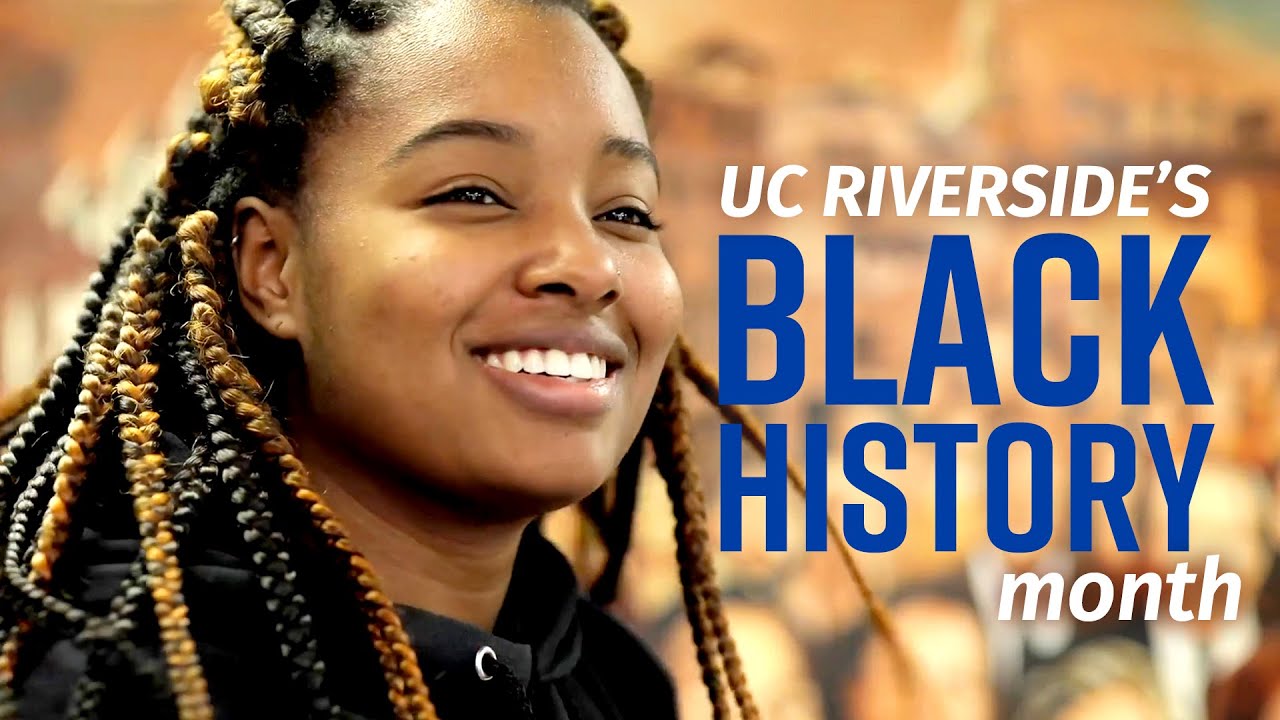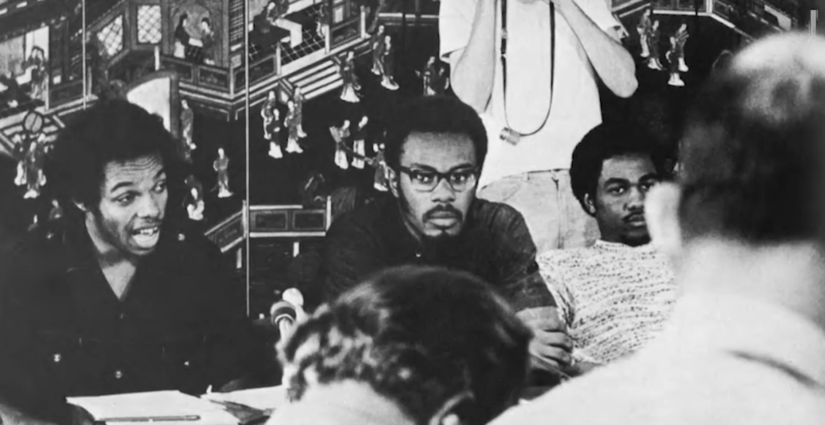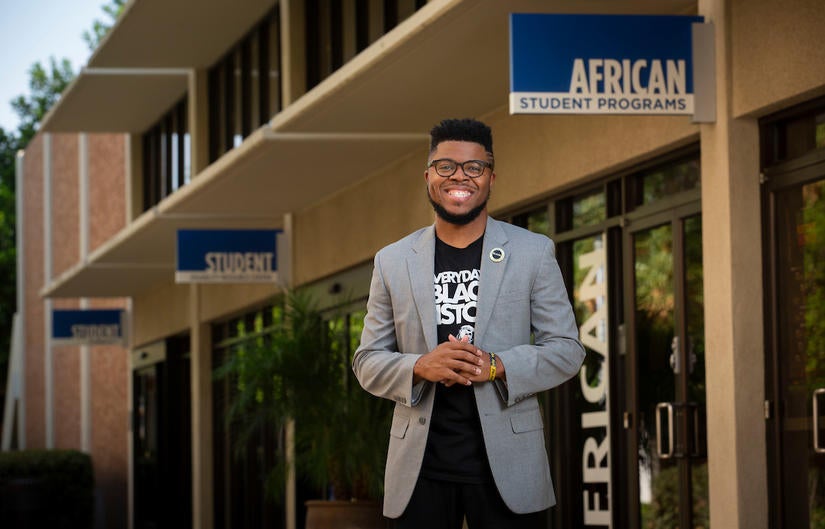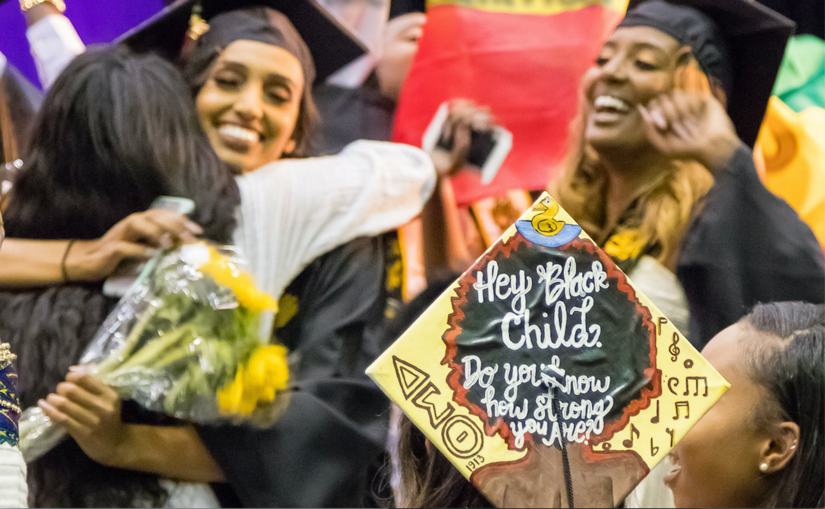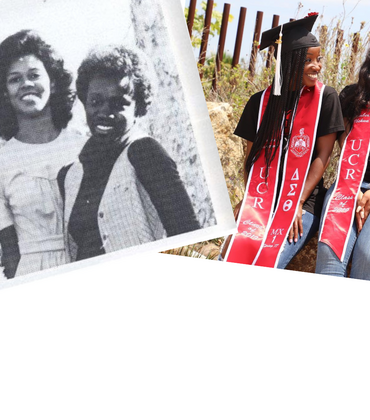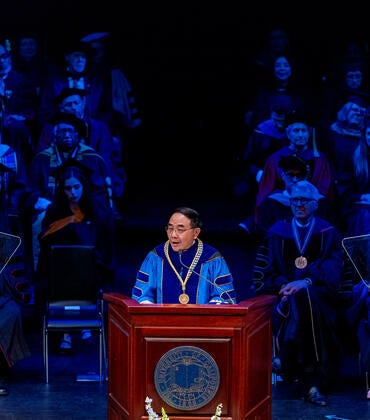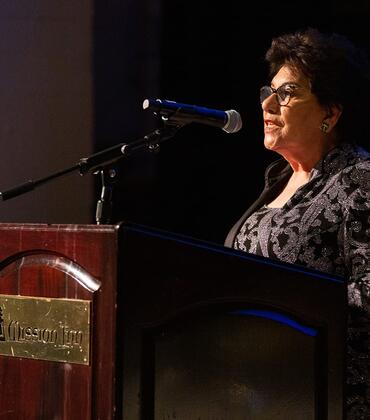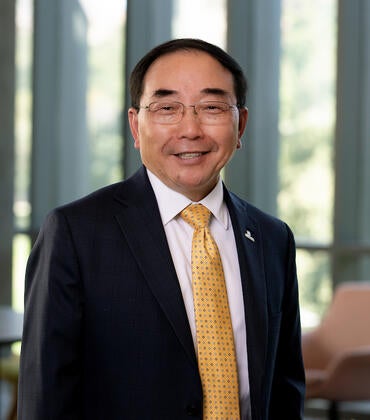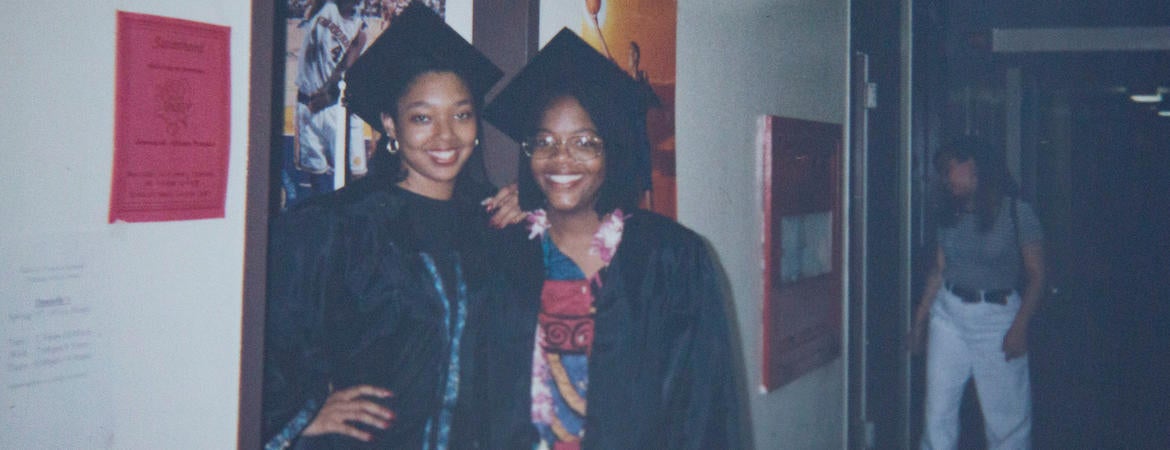
The Black student experience has deep roots at UC Riverside. From the university’s beginning Black students, staff, and faculty members worked together to create a space that allowed their voices to unite.
In 1958, four years after UCR opened its doors, Roy Overstreet became UCR’s first Black graduate. A year later, Zelma Jane Ballard became the first Black woman to graduate. Today UCR has more than 4,400 degreed Black alumni.
“Historically, institutions have brought in students of color, Black students in particular, in large numbers, but they have not been retained,” said Brian Haynes, vice chancellor of Student Affairs. “But here at UCR, across racial and ethnic lines, the equity gaps have almost been eliminated. Not all of the colleges and universities around the country have the same philosophy. That’s why we continue year in and year out across the UC system, to bring in the most diverse classes of incoming students. It’s in our DNA. It’s in our roots. It’s just who we are at UCR.”
UCR has one of the smallest racial achievement gaps in the country. The six-year graduation rate in 2020 was 78.1% for Black students, 78.4% for whites, 73.7% for Latinos and 81.8% for Asian Americans.
The achievement gap has remained narrow at UCR. A look at six-year graduation rates at UCR from 2010 to 2016, indicates that the gap between Black graduates and non-Black graduates was 4%, compared with the national average of 20%. Currently UCR’s Black student population is roughly 800; 50% are first-generation and about 49% are Pell Grant eligible.
Having spaces like African Student Programs — one of the first staffed ethnic centers on campus and in the country — allows students to find support, mentors, and create a home away from home. Jamal Myrick became ASP’s director in May 2020, making him the second youngest director since 1979. Among his goals, is to elevate the Black student experience.
“That’s why we’re No. 1 in social mobility. That’s why we’ve closed our equity gaps,” Haynes said. Social mobility is a measure of the degree to which universities lift graduates into higher income brackets. “And that is quite an accomplishment for an institution as diverse and as dynamic as UCR. What that means on just a foundational level, is that for students who come to UCR it’s transformational, not just for students, but for their families.”
Black student presence has left many firsts, including during challenging times. In the 1960s students organized to establish a greater presence and increase Black student enrollment. In 1969 the Black Studies program was established; the first quarter had 39 students. That program now lives as African American Studies, a major within the Department of Ethnic Studies.
In 1972 African Student Programs was officially established, although the Black Student Union, a student organization, was founded in 1968.
When Jalani Bakari, ’88, became Black Student Union president in 1986, there were 243 Black scholars enrolled, he said. Most students were from Southern California, and likely the first in their families to attend college. Part of their work was to return to their communities and talk to the younger kids about college.
Bakari is now part of UCR’s Chancellor’s Advisory Committees and chair of the Dr. Barnett and Eleanor Jean Grier Concerned Citizens of UCR, one of the oldest groups representing African American leaders since 1982.
Bakari said his voice and that of other Black alumni, along with the work of students, staff, faculty, and campus leadership, is of even greater importance during these times of civil unrest and racial tensions across the country.
Having conversations about racial disparities, racism, and Black history, is encouraged at UCR, Haynes said. People come with their own perspectives and life experiences, but having conversations with respect is a way to mitigate situations, he said.
“We have to understand that, but also respect that,” Haynes said. “That’s what’s lost in these conversations: respect. Respect is a small word, but a big word at the same time. These conversations happen all the time in the resident halls, they happen in the ethnic and gender centers, with students, staff, and faculty, they happen in the Student Recreation Center. For me it all starts in these courageous conversations. That’s the only way we learn. That’s the only way we grow.”
Myrick said providing students, or scholars, as he prefers to refer to them, a safe space to express themselves and find support, is key to his plan as director of African Student Programs.
“To me, Black scholar success means having a place where scholars feel safe, they feel valued, and feel seen,” Myrick said. “It’s them feeling like a necessary part of this campus community. Not just when things are going bad, not just when it’s Black History Month, and not just when it’s cool, but throughout their whole entire time at UCR.”
By the time Bert Wright, ’99, came to UCR, he was among the first cohort of African American students who lived in the reestablished Pan-African Theme Hall, known as PATH, at Pentland Hills residence hall. Wright eventually became the first male resident advisor for PATH.
Wright, an entrepreneur and past president of the Black Alumni Chapter, is part of the alumni group currently working to establish a $25,000 Black Alumni Chapter endowment fund. So far, they have raised $7,000, said Keona Henderson, ’08, current Black Alumni Chapter president.
“As president I have two main goals: build a strong and active alumni connection between freshman and alumni, and also establish a fully funded endowment before 2022,” said Henderson, a motivational speaker, realtor, and founder of Positive Women Meet Up, LLC., an organization that supports female entrepreneurs.
The group is also now offering $500 student scholarships. In November they awarded two and in fall 2021 they will award another two.
“All the money we are fundraising for our scholars is going back to our scholars,” Henderson said. “We want the money to go to scholarships, general relief, for personal and professional development such as grad school, conferences, etc. We are doing this for the students.”
